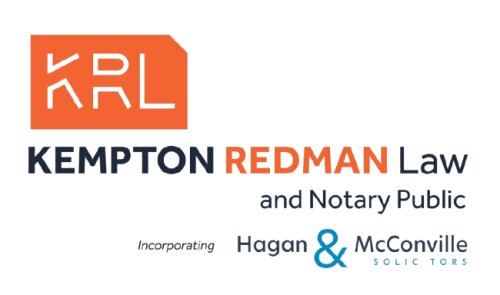Best Real Estate Due Diligence Lawyers in United Kingdom
Share your needs with us, get contacted by law firms.
Free. Takes 2 min.
Free Guide to Hiring a Real Estate Lawyer
Or refine your search by selecting a city:
List of the best lawyers in United Kingdom
About Real Estate Due Diligence Law in United Kingdom
Real estate due diligence in the United Kingdom is a comprehensive review process undertaken before finalizing a property transaction. It involves examining various aspects of a property to identify potential risks and liabilities. Due diligence aims to ensure that buyers fully understand the legal, structural, and financial status of the property they are considering purchasing. This process can reveal issues such as boundary disputes, planning permissions, environmental concerns, and existing mortgages or liens, allowing buyers to make informed decisions.
Why You May Need a Lawyer
Legal advice is often crucial in real estate due diligence for several reasons:
- Complex Legal Documents: Reviewing contracts, leases, and title documents can be complex without professional assistance.
- Identifying Hidden Liabilities: Lawyers can uncover hidden obligations such as covenants or rights of way that might affect future use.
- Regulatory Compliance: Ensuring compliance with local planning, zoning regulations, and building codes is essential and can be tricky to navigate.
- Negotiation and Representation: Legal expertise is critical when negotiating deal terms or resolving disputes that may arise during the due diligence process.
Local Laws Overview
In the UK, real estate due diligence is influenced by various laws and regulations that govern property transactions:
- Land Registration Act 2002: Mandates that most land transactions be registered with the Land Registry, ensuring transparency and reliability in land ownership records.
- Environmental Protection Act 1990: Requires consideration of environmental liabilities, crucial if the property is at risk of contamination.
- Town and Country Planning Act 1990: Addresses planning permissions and local authority permissions essential for property developments or changes in use.
- Building Regulations: Sets standards for design and construction to ensure the safety and energy efficiency of buildings.
Frequently Asked Questions
What is due diligence in real estate?
Due diligence is a comprehensive assessment of a property's legal, structural, and financial aspects to identify any potential risks before purchase.
What documents are typically reviewed during due diligence?
Documents include the title deed, land registry records, planning permissions, environmental reports, and legal disclosures.
How long does the due diligence process typically take?
The timeframe varies but generally lasts between four to six weeks, depending on the complexity of the transaction.
Can I conduct due diligence myself?
While possible, it's advisable to consult with a solicitor to ensure a thorough and legally sound evaluation.
What are common issues found during due diligence?
Issues can range from zoning disputes, undocumented extensions, environmental liabilities, to restrictive covenants.
What is a title search?
A title search verifies the legal ownership of a property and identifies any encumbrances or liens.
How can due diligence impact the purchase price?
Uncovered issues can provide leverage for negotiating a lower price or require resolution prior to purchase.
Do commercial and residential properties require different due diligence?
Yes, they differ. Commercial properties often require additional scrutiny like lease reviews and compliance checks.
What role does technology play in due diligence?
Technological tools can streamline document reviews, data management, and communication, enhancing due diligence efficiency.
What's the cost of hiring a lawyer for due diligence?
Costs vary based on the complexity and scope of the transaction, with some solicitors offering fixed fees and others billing hourly.
Additional Resources
Here are some helpful resources for real estate due diligence in the UK:
- Land Registry: Provides information and services relating to property ownership and land transactions.
- Planning Portal: An online service offering guidance on planning permissions and building regulations.
- The Law Society of England and Wales: Offers access to a directory of solicitors specializing in property law.
- The Royal Institution of Chartered Surveyors (RICS): Provides standards and advice for property valuations and land surveys.
Next Steps
If you require legal assistance in real estate due diligence:
- Identify Your Needs: Determine the scope of advice you need, whether for residential or commercial property dealings.
- Engage a Solicitor: Seek a specialized solicitor with expertise in real estate law to guide you through the due diligence process.
- Prepare Necessary Documents: Gather all relevant property documents to facilitate an efficient legal review.
- Schedule a Consultation: Arrange a meeting with your chosen legal advisor to discuss your transaction and obtain detailed guidance.
Lawzana helps you find the best lawyers and law firms in United Kingdom through a curated and pre-screened list of qualified legal professionals. Our platform offers rankings and detailed profiles of attorneys and law firms, allowing you to compare based on practice areas, including Real Estate Due Diligence, experience, and client feedback.
Each profile includes a description of the firm's areas of practice, client reviews, team members and partners, year of establishment, spoken languages, office locations, contact information, social media presence, and any published articles or resources. Most firms on our platform speak English and are experienced in both local and international legal matters.
Get a quote from top-rated law firms in United Kingdom — quickly, securely, and without unnecessary hassle.
Disclaimer:
The information provided on this page is for general informational purposes only and does not constitute legal advice. While we strive to ensure the accuracy and relevance of the content, legal information may change over time, and interpretations of the law can vary. You should always consult with a qualified legal professional for advice specific to your situation.
We disclaim all liability for actions taken or not taken based on the content of this page. If you believe any information is incorrect or outdated, please contact us, and we will review and update it where appropriate.
Browse real estate due diligence law firms by city in United Kingdom
Refine your search by selecting a city.














